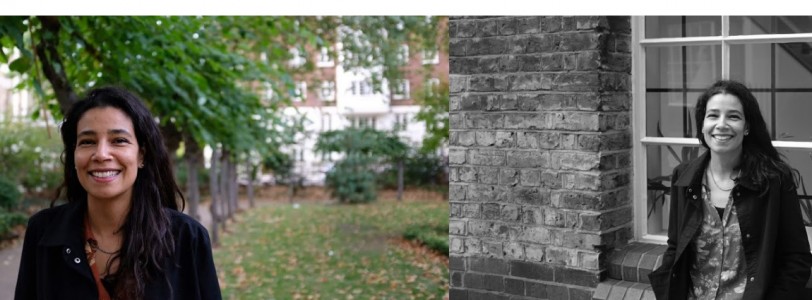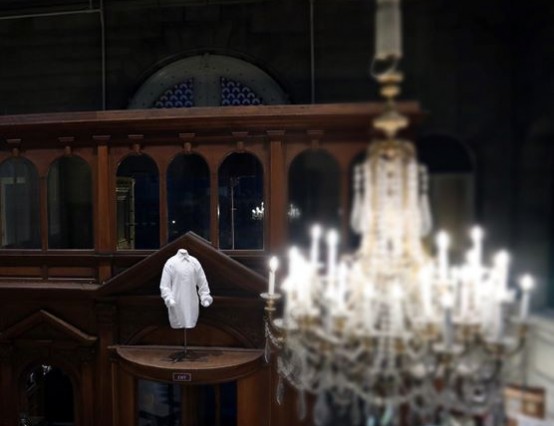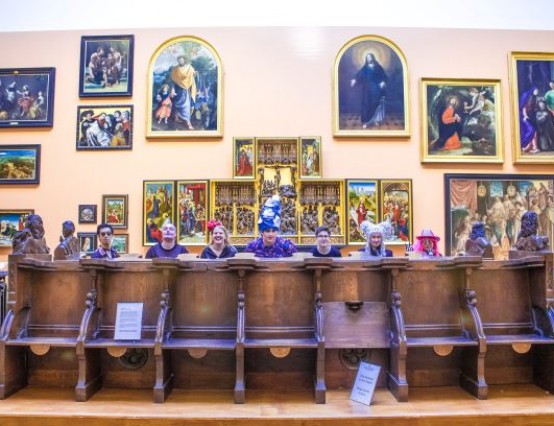Paula is presenting the same Q&A to each participant to draw on common themes and encourage a wider dialogue to support pathways. A core concern at Talkin’ Culture is how the Arts landscape is being compromised in terms of the Equality Act through severe funding cuts. For example, unpaid placements and internships exclude those who can’t afford to enter the pipeline by other means despite being qualified. Talkin’ Culture agrees with major reports that factors like this are an Equality Act issue. Over the course of these blogs Paula will invite emerging conservators to do the talkin’ including their suggestions for positive change to address equality and sustainability in this sector. We hope constructive comments and ideas will be shared in support of equality, sustainability and the endangered list of crafts.
Talkin’ Culture Talks to Morena Ferreira, currently a Phd Student at the UCL Institute for Sustainable Heritage, London.
Thesis Title: Micro-environmental control for the mitigation of mould growth in indoor heritage.
Did you have an easy and obvious route into historic conservation?
I decided I wanted to follow the route of heritage conservation very early on, so in that sense it was somehow obvious, but not very easy. It involved periods with no work or very poorly paid work.
How were your interests supported?
Apart from personal support from family and friends, I was lucky to cross paths with a couple of people working in conservation, in private practices and conservation teaching, that gave me the energy to keep going. Talking to them made me feel it was possible to be a conservator and that I would probably be a good one!
Have you had to take on unpaid work, unpaid internships or have you been expected to work for nothing to gain experience?
In the UK, since 2011, I have volunteered in four different institutions. There is a well-established idea that volunteering is very important but I believe this can only be valuable when well organised within the institution. Many times, I felt undervalued and that it was a complete waste of my time.
In other occasions, as a conservator I was expected to do unpaid work, or receive a very low remuneration, because I was just starting and needed to gain experience. It is a very difficult situation when you know you need to add things on your curriculum vitae but at the same time you studied so much to get there and have bills to pay.
Is pathway information to study and work in historic conservation easy to find?
I think it is easier to find what and where to study, but there is little information on what skills are necessary to work in conservation.
What makes you persevere?
Jobs in conservation can be really diverse, I think. It depends on the institution, colleagues, post, line manager, country, etc. This has been my experience and so I always hoped I could find something I found really interesting, dynamic and challenging, and that is probably what kept me going. At the moment I really enjoy my research and seeing conservators interested in my topic is the best motivation!
What are your biggest challenges as a qualified, emerging conservator?
Do we need to start from bottom jobs or do we go for higher and better paid ones? I would say the main challenges are the reduced number of jobs advertised and consequently the competition with people with much more experience.
Biggest high and low so far?
Biggest high has been the PhD and seeing that there is a great interest in my topic, which is mould issues and how to avoid them.
Biggest low was after completing a MSc in care of collections and not being able to find a job I enjoyed for four years. I had decided in January that I would quit conservation after the summer and in March I saw the advert for my PhD! Typical, right?!
Do you think conservation skills are valued and understood in the mainstream?
I think there is very little understanding of conservation as a profession and the skills that are necessary. Talking to people about what I do, the general reaction is of fascination and then surprise that there is actually a profession on “fixing old things”, which probably “anyone could do”.
If you summarised your risks what are your rewards?
Interdisciplinarity is something that really interests me, and that is something I really enjoy in my route in conservation. I like the variety of the profession, and all the skills am I learning.
What are your recommendations to improve fairer conditions for new entrants into historic conservation?
More paid recognised internships where specific skills can be learned, even if short ones, would be useful for new entrants into conservation.
My huge thanks to Morena for taking part, authentic voices matter and our next Q&A blog will be shared next week.
www.talkinculture.com










Interesting interview! I'm learning a lot about conservation that I didn't know before. It's good to here how people have struggled but still managed to find their feet and ended up doing something they love!